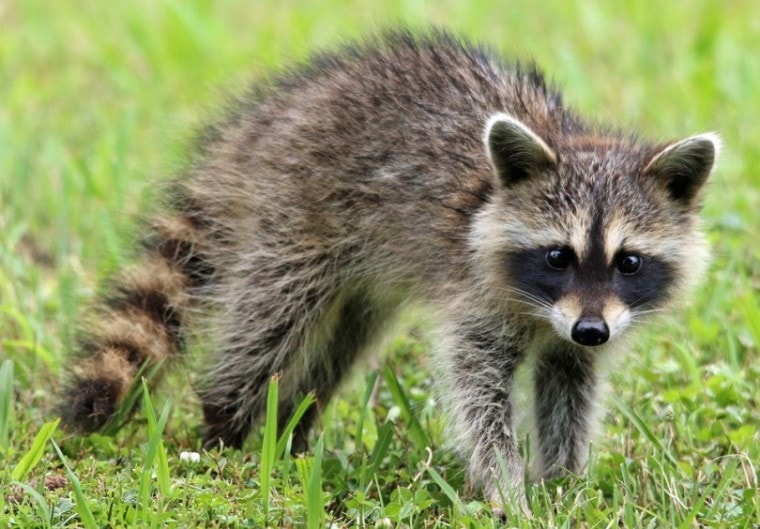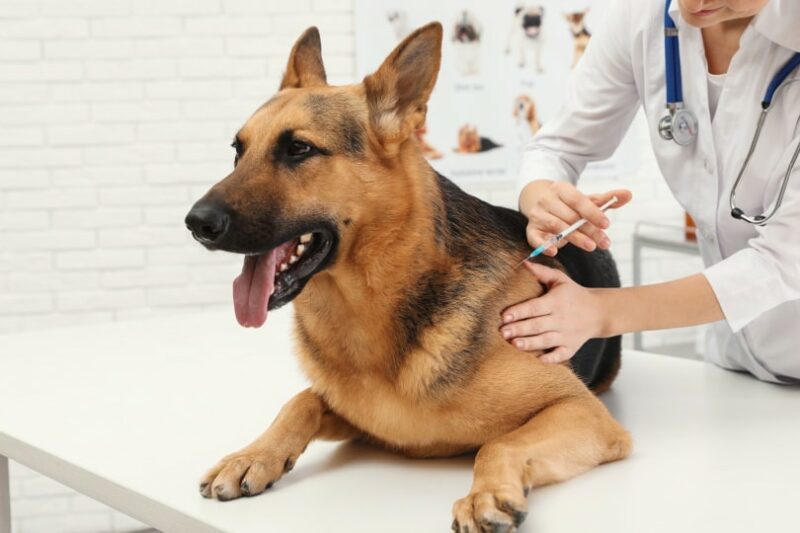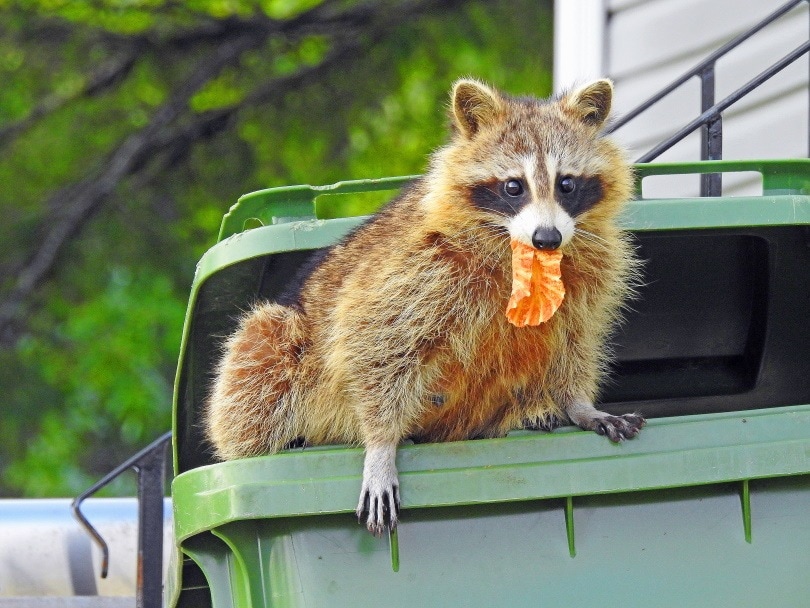
Click to Skip Ahead
Raccoons have a reputation for being pesky, threatening, or even violent. Raccoons can be very scary if they are on the prowl, especially if they are hungry or protecting their young. There have been reports over the years of raccoons attacking and killing everything from chickens to kittens. But what about dogs? Will raccoons attack dogs? Do raccoons eat dogs if they do manage to attack and kill them? The answer to those questions is important to know.
Raccoons will attack dogs from time to time, but it is uncommon. Raccoons do not typically eat dogs, but they have been known to eat kittens and small cats in extreme situations. Here is everything you need to know about raccoons and dogs, including raccoon behavior, what to do if a raccoon attacks, and how to reduce your risk of an unwanted raccoon encounter.
Will Racoons Attack Dogs?
Sometimes. Raccoons do not typically attack dogs, but it is not unheard of. Most of the time, raccoons will do their best to avoid dogs. Many animals in the wild see dogs as potentially dangerous animals. Dogs are predators, after all. Raccoons will not go out of their way to pick a fight with a dog, but if the raccoon is cornered or feels threatened by a dog, it might attack.
Raccoons are more likely to attack a dog if they are protecting their young or if they become trapped or cornered. Sometimes dogs will work to corner an animal using a fence or part of your house in order to make it easier to catch their prey. If a raccoon is cornered, it could lash out and attack your dog.

Do Racoons Eat Dogs?
Raccoons do occasionally attack and eat small animals when they are hungry, but they will not eat dogs. Raccoons are not large enough or strong enough to kill and eat a dog. Raccoons are omnivores, meaning they will eat both plants and animals, but the meat that raccoons eat is not dog meat. Raccoons will eat things like bugs, snails, fish, frogs, and even small birds, but they will not eat dogs.
A Word About Small Dogs
While raccoons will not attack adult dogs very often, they might attack puppies or small dogs. If you have a puppy or a small dog, you should refrain from leaving them outside unsupervised, especially overnight. A raccoon might mistake a puppy for another animal, or they might think that a puppy is an easier target than an adult dog. Some puppies are also curious or rambunctious and can sniff out trouble if they are left alone outside. It is best to be on the safe side and supervise your puppy when they are outside, especially at night or especially if you know you have active raccoons in your area.
What Pet Animals Will Racoons Attack?
Raccoons will attack a variety of different animals in the wild, but they will also target certain pets if they are left outside overnight. Raccoons have been known to tussle with cats more than dogs. Raccoons will also attack small animals left outside, such as chickens, rabbits, or guinea pigs. Raccoons can reach into outdoor cages and maim or kill small animals. Raccoons have been known to pull the heads of domestic chickens by reaching through the bars of the chicken cage. If you keep small animals outside, you will want to do everything you can to make their cages raccoon-proof.
All of these types of animals are more likely to be attacked by a raccoon than a dog.

What Happens If a Racoon Attacks Your Dog?
If a raccoon attacks your dog, you want to immediately try to break up the fight. Try not to get directly involved with the raccoon but make noise, call your dog, and try to scare the wild animal away. Getting directly involved raises the risk that you will get bitten by your dog or the raccoon, which could necessitate a trip to the hospital for you.
Once the fight is over, you need to assess your dog. Any signs of broken skin or blood need to be addressed and treated. If the wounds are light, you can likely clean them yourself at home if you have the necessary supplies. If the wounds are deep, gaping, or won’t stop bleeding, you will likely need to take your dog to an emergency vet clinic for immediate treatment.
Lastly, you want to check your dog’s vaccination status. If your dog is not up to date on their vaccines, particularly rabies, you need to tell your vet and keep an eye out for potential disease or infection that could arise from contact with the raccoon.

Rabies Risk
One of the biggest concerns that can arise from a raccoon attack on a dog is rabies. All domesticated dogs in the United States should be vaccinated for rabies. If a dog catches rabies, it can be fatal. Rabies is incredibly dangerous, and it is infectious. If a raccoon attacks a dog, there is a chance that it could be acting aggressively or rashly because it is infected with rabies. The best way to keep your dog safe from rabies is to keep them up to date on their rabies vaccines. In most places, it is the law to keep your dog’s vaccines up to date. You have to be aware of the risks of rabies when it comes to interactions with raccoons.
 How to Keep Racoons Away from Your House
How to Keep Racoons Away from Your House
One of the best ways to reduce your risk of having a bad interaction with a raccoon is to keep raccoons away from your property. There are a few ways to try and keep raccoons away from your house.
First, set up outdoor lights that come on at night or that are motion activated. Lights can startle raccoons and keep them away. Many raccoons prefer to stay hidden in the dark. Second, make sure that you keep your trash locked up. Make sure raccoons can’t get into your outdoor trash cans. Keep your trash cans close to your door where raccoons are less likely to go and keep trash cans in the light.
Lastly, you can set up traps to try and capture nuisance raccoons. Make sure to look up your local laws and regulations about trapping and releasing nuisance wildlife before attempting this. These methods can help keep raccoons away from your house and will vastly reduce your risk of having a bad experience with a raccoon.

Conclusion
Raccoons can attack dogs, but it is uncommon. Raccoons have the ability to bite and scratch a dog, but they will rarely do serious damage. Raccoons do not eat dogs. They can be a nuisance and a danger to other small outdoor animals. The best thing to do is ensure that your dog is up to date on its rabies vaccine and work to keep raccoons away from your house to avoid any violent interactions between your pets and raccoons.
Featured Image Credit: edbo23, Pixabay






